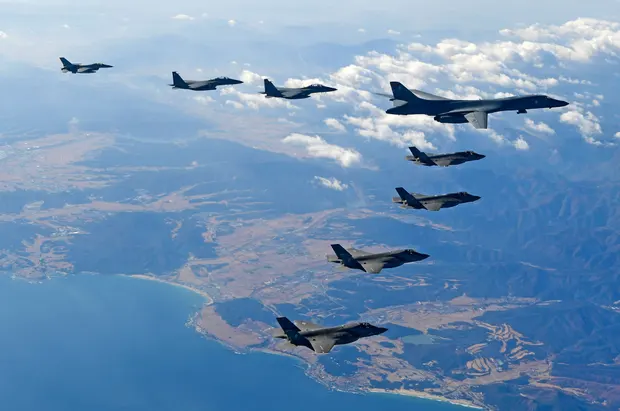A study, said to be the first-of-its-kind has found that the US and UK militaries owe at least $111bn in reparations to communities most harmed by their planet-heating pollution.
According to reports, the research employed a “social cost of carbon” framework – a way to estimate the cost, in dollars, of the climate damage done by each additional tonne of carbon in the atmosphere.
In his reaction, Patrick Bigger, research director of the Climate and Community Project and co-author of the report, said that the environmental costs of maintaining the global military reach of the US and UK armed forces are astonishing.
According to the report, which was published by the UK-based thinktank Common Wealth and the US-based Climate and Community Project, the two militaries have generated at least 430m metric tonnes of carbon dioxide equivalent since the 2015 United Nations Paris climate agreement. That’s more than the total greenhouse gas emissions produced in the UK last year.
Employing an equation drawn up by a Columbia University researcher in 2021, the researchers said that the US military should offer $106bn in international climate financing, while the UK military should offer $5bn, to offer minimal compensation for damage caused by those emissions.
Read also: Report: Fashion’s efforts to go green cancelled out by shopaholics
Those figures, though eye-popping, are “extremely conservative”, the authors say.
Khem Rogaly, a researcher at Common Wealth and study co-author, said “But it really is the minimum,”. “We wanted to get a sense of the minimum scale of climate finance that both of these countries owe due to the effects of their military operations,”.
The figures omit data from 2017 and 2018, when the UK military failed to report its emissions estimates, and from 2022, which the US has not yet released. They also fail to account for certain climate impacts of military activity such as the unique climate-warming properties of jet fuel, among other issues.
The UK and the US have made some plans to clean up their militaries’ emissions imprints.
Basav Sen, climate policy project director at the Institute for Policy Studies thinktank, who reviewed the report, said the research is “crucial”.
“We can’t account for our emissions without accounting for the military-industrial complex,” he said.
Story was adapted from the Guardian.
